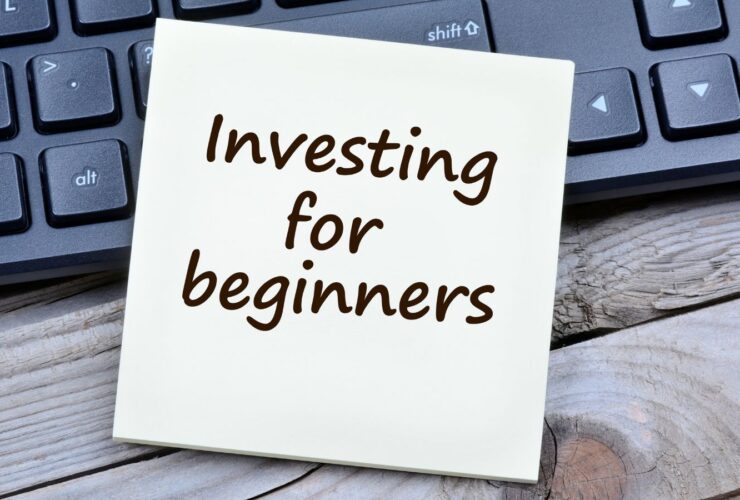Investing for Beginners: How to Get Started
Most of the people that we talk to about investing share one thing early on…they don’t know where to start! The financial world is vast and the acronyms are many. It’s easy to get lost in the first few minutes of a conversation about investing once someone starts throwing out terms like ARR, preferred return, and fiduciary duty.
We’re excited to kick off a series of blog posts that will provide some easily digestible knowledge and tips to help you navigate the massive world that is investing. Let’s take a look at some of the basics beginner investors need to know. Ready, set, go!
#1 Get started early
Have you ever heard of the saying that the best time to plant a tree is 20 years ago? Well, it’s no different when we talk about investing.
All levity aside, there is wisdom in looking at investing this way because it highlights the main principle of good investing: things take time. Every successful investor will tell you that they wish they got started earlier. The one thing that you can never buy more of is time, so get started as soon as you can.
Now, related to this is a caution against investments that advertise “get rich quick” investments. It’s true that some investments have great and stable returns, but if someone came up to you and told you that if you plant a tree with them they can turn it into a fully grown tree in 6 months what would you think? You’d probably walk away and it’s similar with investing. Wealth takes time to build, even with great returns, so get started quickly.
#2: Do your research and trust who you work with
While investing early is great, you don’t want to throw your money at everything that anyone brings your way. Every single investment on the planet comes with 2 things:
-
A return profile: This defines the return, fixed or variable, how long it takes, etc.
-
A risk profile: This is the outline of the risks involved
As you start to invest more, there will be many people that want you to put your money with them. This is the natural way of things, but it means that you want to get good at what we call due diligence.
Doing your due diligence is a “trust but verify” type of mentality. This includes not just asking questions about the investment, but also getting to know the person or people you are investing with. There are a million ways to make money in investing, but when you find people that you like and that you like working with, you stick with them. You’ll be happier with your investment if you work with people you can develop a relationship with.
At Hedgehog, we believe trust and relationships are paramount with good investments. We never work with people that we don’t build trust with and it’s one of the main reasons why we do as well as we do.
#3: Look for Compounding investments
This part of the investing process is often overlooked, but we’ll let you in on an insider secret: If you can compound your investments then you will make a lot more money.
Take a simple example. If you have $100,000 and you make a 10% return, you are looking at $10,000 of returns. That’s great! If you keep making 10% on that money then you will get $10,000 each year. Amazing right?
Well, consider that same money, but with 10% compounding interest. The first year you will make $10,000, then the second year you will make 10% of $110,000, or $11,000, the next year you will make $12,100, then $13,310, then $14,641, and so on and so forth. By the 10 year you will have grown so much that the average annual return over those 10 years is nearly 16%!
Compounding investments are one of the best ways for you to maximize how your money works for you.
#4: Taxes hurt, but they don’t have to
No one likes taxes, but you can make them work better for you. One way to maximize the amount of money you have over time is by investing pre-tax. Doing this will reduce your taxable income meaning you will pay less in taxes.
There are a number of ways for you to grow your money in a tax-deferred manner, and if you do so then you will further maximize how much work your money can do for you. Uncle Sam will get his cut eventually, but while you are building your wealth you want to keep him out of it!
Our best advice here is to develop a good relationship with a tax professional. Many people will have tips and tricks, but the only way to know for sure that you are doing it right is to talk and work with someone who knows the laws and how to navigate them.
#5: One way to get started with investing
We’ll reiterate here that getting started is key, and there are a number of things that you can do that will be so much better than keeping money in a bank account:
-
You can put your money in mutual funds where you can typically expect a 3-7% return
-
Put your money in the hands of a trusted financial advisor or planner
-
Opt for a higher risk option and participate in day trading or buying stock.
At the end of the day, it’s important to understand that keeping your money in a savings account is a less efficient way to build your wealth. By the time inflation kicks in, the .01% return that you’re earning in your savings account will have minimal impact on your wealth.
The bottom line
To recap, get started today with investing, do your due diligence wherever you put your money, and look for compounding returns, and if you can, tax deferred investments. If you do this consistently then over the years your efforts will pay off and you will be successful in building wealth for you and your family.
This is also where we do a shameless plug for ourselves. Our goal at Hedgehog is to help all of our clients build wealth. We don’t just offer great returns (12-20%), but also returns that compound year over year. One of the best parts is that, unless you make a withdrawal from your account, your money will grow tax-deferred and let you maximize your returns! Get in touch with us today to learn more.
Disclaimer:
This material is intended for informational purposes only and should not be construed as legal or tax advice. Information here is not intended to replace the advice of your investment advisor or financial advisor. This information is not an offer or a solicitation to buy or sell securities. This information may have been compiled from third-party sources and is believed to be reliable. All investing involves risk, including the loss of principal.




